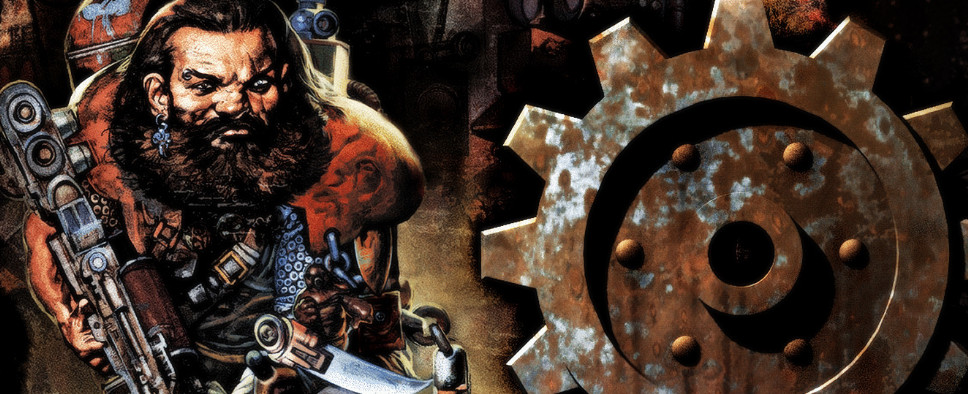Chad Moore Interview - Page 2
-
Category: InterviewsHits: 12294

Article Index
GB: You were heavily involved in the production of Troika Games’ Arcanum: Of Steamworks and Magick Obscura. In fact, your alter ego, Sir Chadwick Moore, was immortalized in one of the loading screens as the author of “An Unfortunate Affair,” a very much real short story that served as a piece of foundational fiction for the game. Can you tell me something about how that story, and the game’s unique world that combines magic and steampunk technology, came to be?
CM: That was a really fun and interesting project that I took on soon after joining the team at Troika. We had already done a lot of early world-building, but we needed something to bring all of those great ideas into a more compelling picture of what the world was like. And so “An Unfortunate Affair” was born. It ended up being a lot longer than I’d originally planned – but I think it was really successful in communicating what was unique about the game world. It was really useful for the team as a creative target, and I remember the community really enjoying it when we released it later on.
GB: Where does this story of yours fit into the bigger picture? It mentions Tarant, the game’s biggest hub, features some prominent NPCs, describes a good number of spells and technological gadgets, and even sneaks in a mention of the infamous gnome conspiracy quest. Did you have some reference document when writing about all those things or did you invent them for the story? What's the chicken and the egg situation here like?
CM: It was a little bit of both. Things like Tarant, Tulla and the gnome conspiracy were already an established part of the lore – and I wanted to weave them into the narrative. But I created the characters from whole cloth to tell this particular story, and made up a few gadgets and spells along the way. The best part about the whole experience was going back and weaving those characters back into the game itself – so you could meet Perriman Smythe in Tarant, or Sebastian in the Boil, and recruit them as followers. Even Willoughsby and Lorham made cameos. My inner lore nerd still gets a little giddy just thinking about it.
GB: Beyond that story, which parts of the game you personally worked on? Which were your favorite?
CM: Outside of the character models that I modeled and implemented into the game, one of my main responsibilities was writing and scripting many of the followers. Each of them had different stories and personalities, and many of them would react differently (and sometimes violently) depending on who else was in the group. It was a very complex exercise, but very cool in those situations where their reactivity was on display. There were some really great personalities in there as well – from Magnus Shale Fist the secret descendant of the legendary Iron Clan to Franklin Payne the world-renowned explorer.
GB: Among many other things, Arcanum is notable for its writing style that feels very authentic to the time period it depicts. Was it difficult to write in that unique old-timey style?
CM: It took a little while for the team to gel around that pseudo-Victorian style – but once we got rolling, it just became second nature. There’s a lot variation even just in the English dialects in that era – from the cultured and haughty voice of the high class (like Geoffrey Tarrelond-Ashe) to a more guttural Scottish brogue (like Magnus). And each of those has its own unique idioms and turns of phrase. As a writer, it was just a fun world to create in.
What’s really funny is that to this day I still catch myself writing the word “magick”. We had to write it so many times in dialogs and other materials, it just became muscle memory. It took me years to stop doing every time.

